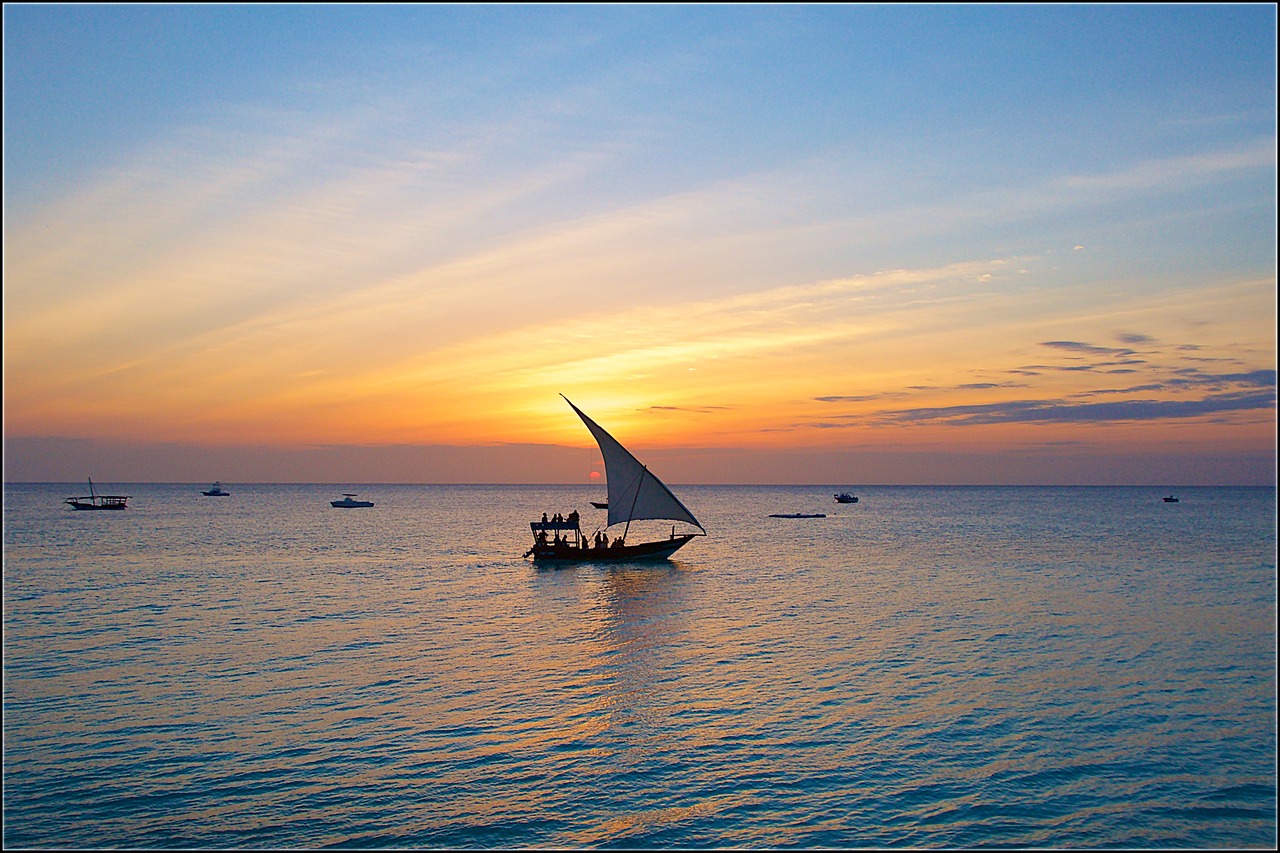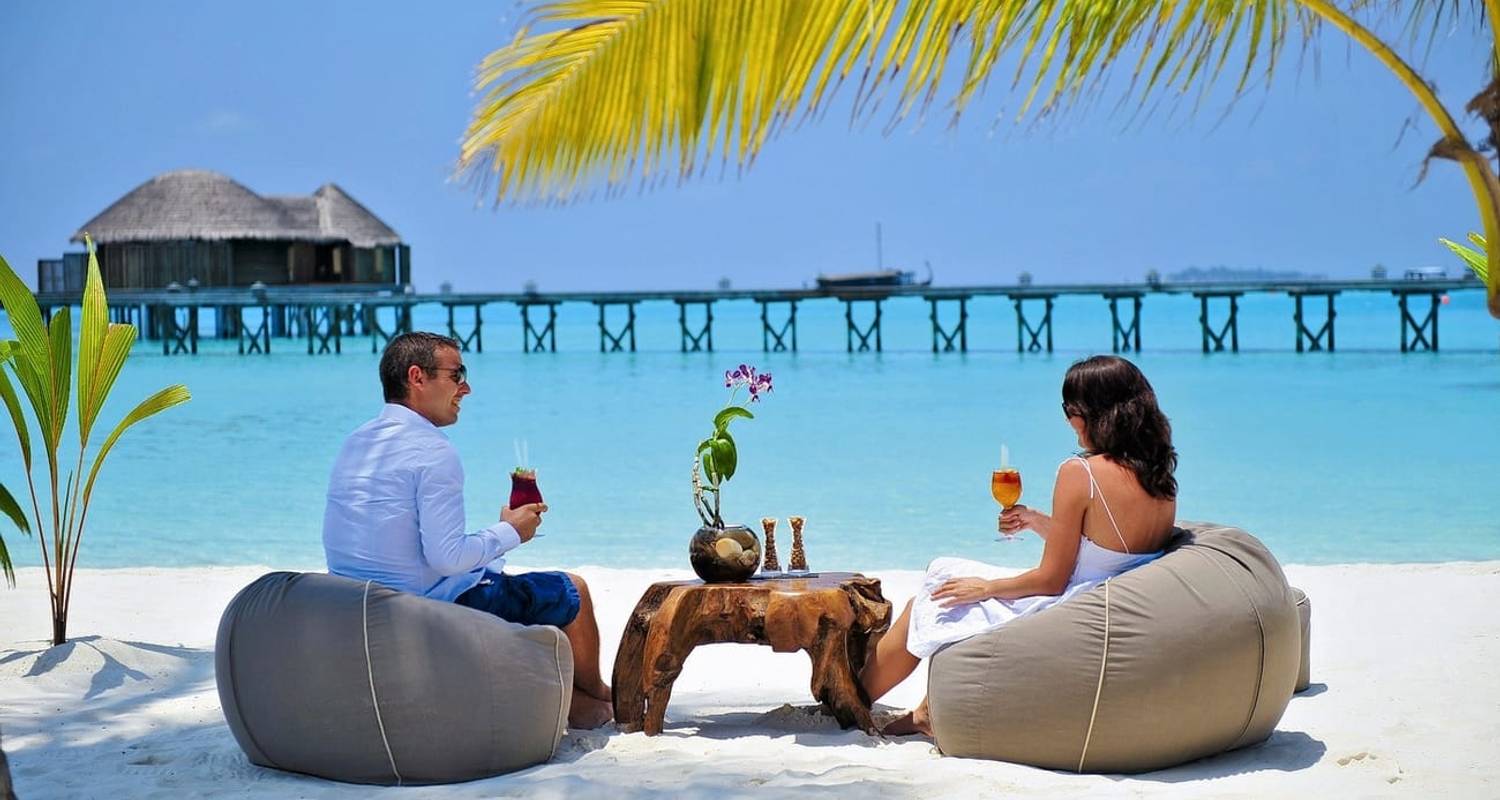Zanzibar, an archipelago off the coast of Tanzania, is world-renowned for its pristine beaches, rich cultural history, and vibrant marine life. Whether you’re looking to relax on the beach, dive into the crystal-clear waters, explore ancient history, or indulge in local cuisine, Zanzibar offers an unforgettable island experience. Here’s a detailed guide to what you can expect when visiting Zanzibar:
1. Welcome & Accessibility
Zanzibar is a popular tropical destination that’s easily accessible from Tanzania’s mainland and various international locations. The main island is Unguja, and the smaller island of Pemba is also part of Zanzibar.
By Air: The Zanzibar International Airport (ZNZ), located near the island’s capital Stone Town, is the main gateway for international and domestic flights. It is well-connected with direct flights from major cities like Dar es Salaam, Nairobi, Doha, and Dubai, as well as seasonal flights from Europe.
- Domestic flights: You can also fly from Dar es Salaam (about 20-30 minutes) to Zanzibar via regional airlines. Zanzibar is often combined with safaris or other beach destinations in Tanzania, so many visitors fly from the mainland after their safari.
By Sea: Ferries also operate regularly between Dar es Salaam and Zanzibar, which takes about 1.5 to 2 hours. This is a popular option for those traveling on a budget or looking for a scenic journey across the Indian Ocean.
By Boat: Small boats also operate from Tanzania’s mainland coastal towns, such as Bagamoyo and Mtwara, to the islands of Zanzibar, especially during certain seasons.
2. Climatic Conditions
Zanzibar has a tropical climate with distinct wet and dry seasons, making it a year-round destination for beach lovers and water sports enthusiasts.
Dry Season (June to October): This is the best time to visit Zanzibar for warm, sunny weather. Temperatures range from 25°C (77°F) to 30°C (86°F) during the day, with cool evenings. The dry season is ideal for beach activities, snorkeling, and sightseeing.
Short Rains (November to December): These months bring short, heavy rain showers, usually in the late afternoon or evening. The rains are not usually continuous, but it’s still a period with a bit more rain. It’s less crowded and cheaper, but not as ideal for outdoor activities.
Long Rains (March to May): The long rainy season occurs between March and May. This period is characterized by heavy, sustained rains and is considered the low season for tourism. Although the island is lush and green, the rains can affect beach activities, so it’s less popular for travel.
Humidity: Zanzibar is generally humid throughout the year, and humidity can reach up to 85% in the rainy months.
3. Activities
Zanzibar’s mix of beautiful beaches, historical sites, and vibrant marine life means there’s a wide range of activities available, whether you’re looking for relaxation or adventure.
Beach & Water Activities:
Snorkeling and Scuba Diving: Zanzibar’s waters are home to some of the best snorkeling and diving sites in East Africa. Popular spots like Mnemba Atoll (famous for its coral reefs and marine life), Tumbatu Island, and Kendwa offer opportunities to explore colorful coral gardens and encounter marine life like dolphins, sea turtles, and vibrant fish.
Dhow Cruises: A traditional dhow cruise is a great way to explore Zanzibar’s coastline. You can take sunset cruises, day trips to nearby islands like Prison Island or Chumbe Island, or enjoy a private sailing experience. Some cruises even include a swimming with dolphins excursion, where you can swim alongside wild dolphins.
Kitesurfing: The beaches of Paje and Jambiani on the southeast coast of Zanzibar are known for their excellent kitesurfing conditions. These areas attract both beginners and professionals with consistent winds and shallow, warm waters.
Fishing: Zanzibar offers world-class deep-sea fishing, with opportunities to catch game fish like marlin, sailfish, tuna, and wahoo. Fishing trips can be organized from various beach resorts or local operators.
Swimming & Relaxing on the Beaches: Zanzibar has some of the most beautiful beaches in Africa. Popular beaches like Nungwi, Kendwa, Paje, and Jambiani offer soft white sand, crystal-clear waters, and plenty of space to relax, swim, or take part in water sports.
Beach Volleyball and Other Sports: Some resorts offer beach volleyball, paddleboarding, and other sports for guests.
Cultural and Historical Activities:
Stone Town Tour: A UNESCO World Heritage Site, Stone Town is the historic heart of Zanzibar. Wander through its narrow alleyways, visit the House of Wonders, the Sultan’s Palace, the Old Fort, and the Freddie Mercury Museum (Freddie Mercury, the iconic lead singer of Queen, was born in Zanzibar). Don’t miss the Forodhani Gardens for a taste of local food in the evenings.
Spice Tour: Zanzibar is known as the “Spice Island.” You can take a guided tour of one of the island’s spice farms and learn about the production of cloves, nutmeg, cardamom, cinnamon, and vanilla. It’s a fragrant and educational experience, and many tours include tastings of the freshly harvested spices.
Prison Island: Located just off the coast of Stone Town, Prison Island (also known as Changuu Island) was once used as a quarantine station for yellow fever and later as a prison. Today, it’s home to giant tortoises and a great spot for snorkeling.
Jozani Forest: Explore Jozani Chwaka Bay National Park, Zanzibar’s only national park, known for its red colobus monkeys (which are endemic to the island). The forest also has lush mangrove swamps, and you can take a walk along the nature trails to spot various species of birds and butterflies.
Zanzibar Cultural Tours: Visit traditional villages to experience Zanzibar’s rich cultural heritage. The Maasai and Shirazi people offer insight into the island’s historical roots, and the local markets give a taste of Zanzibar’s vibrant daily life.
Dhow Building: Some tours offer a chance to see how traditional wooden dhows (boats) are constructed. This ancient craft is still practiced on the island.
Adventure and Nature:
Walking & Cycling Tours: Zanzibar is great for cycling or walking tours around its villages, beaches, and natural reserves. Many resorts offer bike rentals, and you can take self-guided or organized tours to explore the island’s interior.
Wildlife Watching: In addition to the red colobus monkeys at Jozani Forest, Zanzibar also has a diverse bird population, including Spoonbills and herons, making it a great spot for birdwatching.
4. Attractions
Here are some must-see attractions in Zanzibar:
Stone Town: The cultural heart of Zanzibar, Stone Town features intricate architecture, bustling markets, and a fascinating mix of African, Arab, and European influences. Visit the House of Wonders, Sultan’s Palace, and the old slave market to learn about Zanzibar’s history.
The Spice Plantations: Zanzibar’s spice farms are a highlight, where you can see and smell the island’s spice-growing traditions firsthand.
Nungwi & Kendwa Beaches: The northern beaches of Zanzibar, particularly Nungwi and Kendwa, are known for their stunning sunset views, soft white sand, and ideal conditions for snorkeling and diving.
Prison Island: Famous for its giant tortoises, this island is a relaxing day trip from Stone Town.
Jozani Forest: Known for its unique red colobus monkeys, it’s one of the last remaining forests of its kind in East Africa.
Chumbe Island: A pristine, protected marine reserve known for its coral reefs, this private island offers some of the best snorkeling in Zanzibar.
5. Additional Tips for Visitors
- Best Time to Visit: The dry season (June to October) is the most popular time to visit Zanzibar for beach activities, though the rainy season is less crowded and may offer cheaper accommodation rates.
- Currency: Zanzibar uses the Tanzanian Shilling (TZS), but US Dollars are widely accepted. It’s advisable to carry some local currency for small purchases.
- Language: The main languages spoken are Swahili and English. Swahili is widely spoken and useful for day-to-day communication.
- Health and Safety: Be sure to get malaria prophylaxis before traveling and drink bottled water. Always use sunscreen and insect repellent.
Conclusion
Zanzibar is a tropical paradise offering a combination of relaxation, culture, adventure, and natural beauty. Whether you’re lounging on stunning beaches, diving into the rich coral reefs, exploring the history of Stone Town, or experiencing the spice farms, there’s something for every type of traveler. Its unique mix of beach resort luxury, rich heritage, and outdoor activities makes Zanzibar a top destination for anyone


